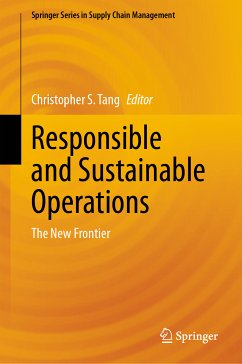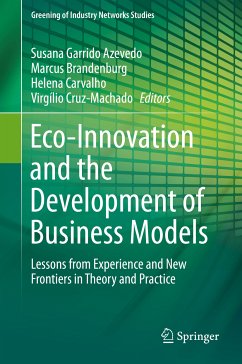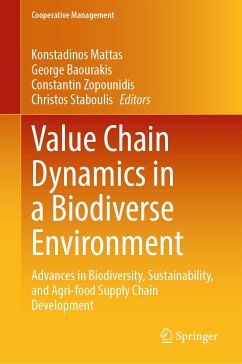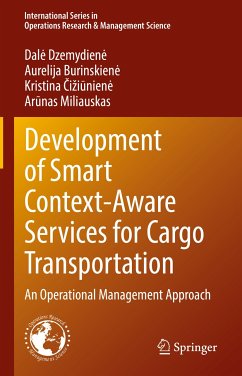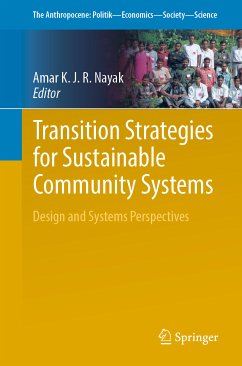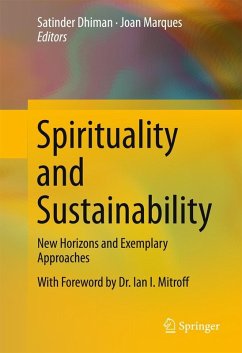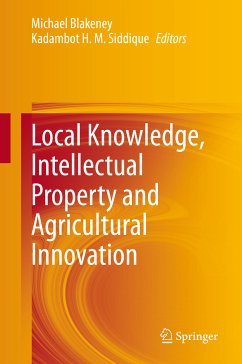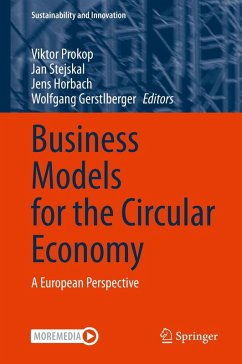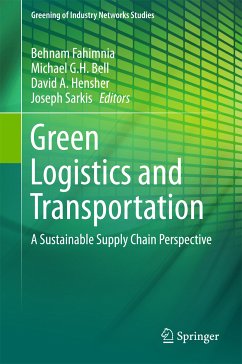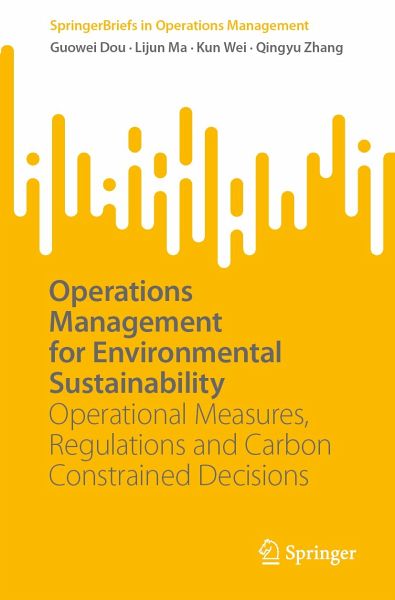
Operations Management for Environmental Sustainability (eBook, PDF)
Operational Measures, Regulations and Carbon Constrained Decisions

PAYBACK Punkte
18 °P sammeln!
This book explores optimal decisions for companies and governments to build a sustainable supply chain and economy by applying analytical models from new perspectives.Taking differentiated carbon permit-buying and -selling prices into consideration, it investigates the optimal emission permit cap under the "cap-and-trade" regulation and discusses how to establish a two-period carbon tax scheme with a two-period planning horizon.Moreover, it examines how to balance the economic and environmental performances in a closed-loop supply chain, how to implement trade-in program when employing green t...
This book explores optimal decisions for companies and governments to build a sustainable supply chain and economy by applying analytical models from new perspectives.
Taking differentiated carbon permit-buying and -selling prices into consideration, it investigates the optimal emission permit cap under the "cap-and-trade" regulation and discusses how to establish a two-period carbon tax scheme with a two-period planning horizon.
Moreover, it examines how to balance the economic and environmental performances in a closed-loop supply chain, how to implement trade-in program when employing green technologies, and how to strategically use the blockchain technology to improve the environmental performance of supply chain under the carbon tax policy.
This book is written for students and researchers who are specialized in the field of operations management with a focus on environmental sustainability. It is also beneficial for specialists and executives at companies that are facing carbon emission regulation challenges, as well as government officials who develop the emission control policies.
Taking differentiated carbon permit-buying and -selling prices into consideration, it investigates the optimal emission permit cap under the "cap-and-trade" regulation and discusses how to establish a two-period carbon tax scheme with a two-period planning horizon.
Moreover, it examines how to balance the economic and environmental performances in a closed-loop supply chain, how to implement trade-in program when employing green technologies, and how to strategically use the blockchain technology to improve the environmental performance of supply chain under the carbon tax policy.
This book is written for students and researchers who are specialized in the field of operations management with a focus on environmental sustainability. It is also beneficial for specialists and executives at companies that are facing carbon emission regulation challenges, as well as government officials who develop the emission control policies.
Dieser Download kann aus rechtlichen Gründen nur mit Rechnungsadresse in A, B, BG, CY, CZ, D, DK, EW, E, FIN, F, GR, HR, H, IRL, I, LT, L, LR, M, NL, PL, P, R, S, SLO, SK ausgeliefert werden.



